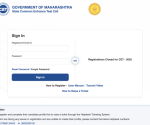8 transformative ways to sharpen your communication skills and ace any interview – Times of India

Job interviews today are no longer transactional assessments of your technical know-how — they have become multidimensional evaluationsof who you are, how you think, and how well you adapt. While qualifications and hard skills remain essential, they are often taken as a given by the time you sit in the interview chair.What employers are really probing is whether you can collaborate, communicate, and thrive in evolving, real-world scenarios. The modern hiring philosophy reflects a powerful shift: skills can be taught, but attitude, adaptability, and emotional intelligence are far harder to instill.Across conference tables and virtual calls alike, hiring managers are listening as much to the tone of your voice as to the content of your answers. Are you composed under pressure? Are your thoughts structured, your delivery confident, your manner authentic? A steady voice and well-paced articulation aren’t just about sounding good — they telegraph professional maturity, credibility, and trustworthiness. Long before your technical capabilities are verified, your communication style can either open the door to opportunity or quietly close it.In the high-stakes world of interviews, words don’t just answer — they persuade, they position, and sometimes, they win.
Master the art of structured thinking before speaking
Interviewers are not just assessing what you say, but how logically you organise your thoughts. Rambling is a red flag; coherence signals clarity and confidence.What to do:Use frameworks like STAR (Situation, Task, Action, Result) to answer behavioural questions. Practise summarising complex experiences in 60–90 seconds. Start with the ‘what,’ then build the ‘why’ and ‘how.’Pro tip: Practice mock interviews aloud with a timer. Clear structure builds credibility.
Elevate your verbal fluency with active vocabulary practice
A limited vocabulary can lead to hesitation, filler words, and vagueness — all of which weaken your message.What to do:Read diverse content daily — from business news to opinion columns — and note unfamiliar words. Use them in sentences to internalise meaning. Replace generic words like “good” or “nice” with sharper alternatives like “effective” or “insightful.”Pro tip:Record yourself speaking on random topics for two minutes daily, then review and refine.
Perfect your body language
Non-verbal cues speak louder than words. Crossed arms, lack of eye contact, or nervous fidgeting can undercut even the most articulate answers.What to do:Practise a poised, open posture. Maintain comfortable eye contact (not a stare-down), use subtle hand gestures, and smile naturally. Your body should echo your words, not contradict them.Pro tip: Simulate interviews in front of a mirror or record video calls to self-correct.
Listen like a leader
Candidates who interrupt or respond too quickly come across as either arrogant or inattentive. Listening is the underrated half of communication.What to do:Pause for half a second before replying. Nod occasionally to show engagement. Paraphrase the question briefly in your answer to signal you understood.Pro tip:During group discussions or panel interviews, referencing something another speaker said shows attentiveness and earns respect.
Tailor your tone: Modulate, don’t monologue
A flat tone can make even brilliant answers sound dull. On the other hand, too much enthusiasm can seem rehearsed or artificial.What to do:Vary your pitch to match the emotion of what you’re saying — calm during explanations, upbeat when discussing achievements, reflective when addressing challenges.Pro tip:Practice reading news articles aloud with emotion — this trains modulation and expression naturally.
Be crisp, not cryptic
Interviewers appreciate brevity and clarity. Over-explaining can dilute your message and test their patience.What to do:Distil your key points before diving into details. Use short, sharp sentences. Avoid jargon unless necessary — and if used, explain it.Pro tip:Imagine your answer as a tweet before expanding — if it can’t be summed up in a sentence, it’s too muddled.
Engage in strategic storytelling
Facts inform. Stories persuade. A well-told anecdote can demonstrate your competence and cultural fit far more powerfully than a checklist of skills.What to do:Prepare 3–5 stories from your life — academic wins, team conflicts, leadership moments — and rehearse them with emotional resonance and professional relevance.Pro tip:Every story should have a clear ‘so what?’ — a takeaway that aligns with the job you’re applying for.
Simulate real-world pressure
You may speak fluently in casual settings but falter under stress. Interviews amplify nerves — only rehearsal under pressure can prepare you.What to do:Participate in mock interviews with mentors or peers who challenge you. Join debate clubs or Toastmasters. Record yourself answering rapid-fire questions to mimic real-time thinking.Pro tip:Time-box your responses. If you can answer every question within two minutes without losing depth, you’re ready.
















